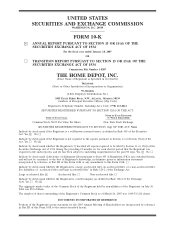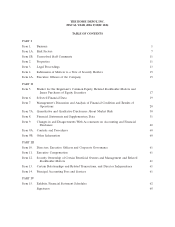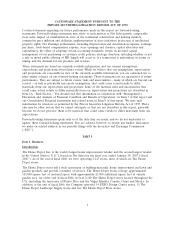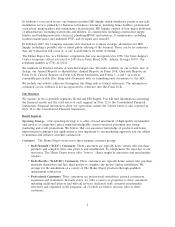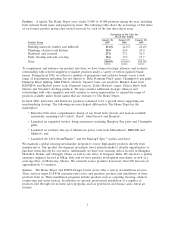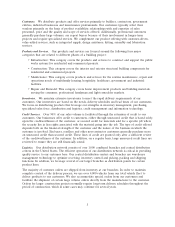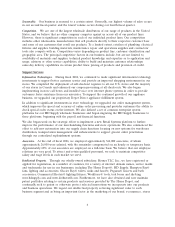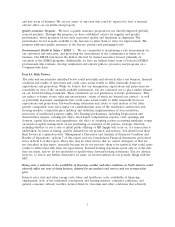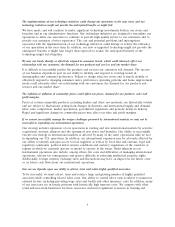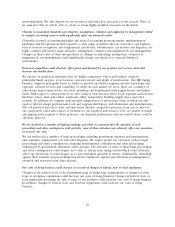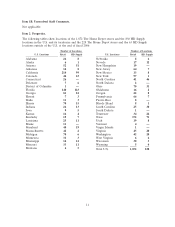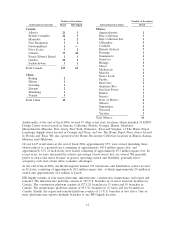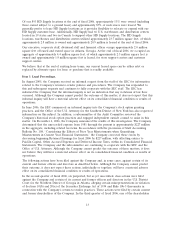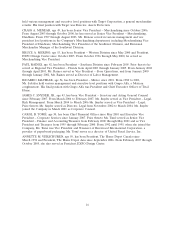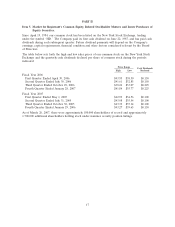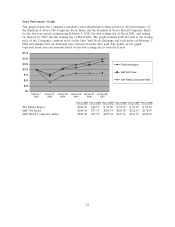Home Depot 2006 Annual Report Download - page 18
Download and view the complete annual report
Please find page 18 of the 2006 Home Depot annual report below. You can navigate through the pages in the report by either clicking on the pages listed below, or by using the keyword search tool below to find specific information within the annual report.affect consumer demand for our products and services could adversely affect our financial performance.
These and other similar factors could:
• increase our costs,
• cause our customers to delay undertaking or determine not to undertake new home
improvement projects,
• cause our customers to delay purchasing or determine not to purchase home improvement
products and services,
• cause our customers to delay or determine not to undertake new spending in the commercial,
residential, industrial and public infrastructure markets, and
• lead to a decline in customer transactions and in average ticket price.
We rely on third party suppliers, and if we fail to identify and develop relationships with a sufficient number
of qualified suppliers, our ability to timely and efficiently access products that meet our high standards for
quality could be adversely affected.
We buy our products and supplies from suppliers located throughout the world. Our ability to continue
to identify and develop relationships with qualified suppliers who can satisfy our high standards for
quality and our need to access products and supplies in a timely and efficient manner is a significant
challenge. Our ability to access products and supplies also can be adversely affected by political
instability, the financial instability of suppliers, suppliers’ noncompliance with applicable laws, trade
restrictions, tariffs, currency exchange rates, transport capacity and cost and other factors beyond our
control.
If we are unable to effectively manage and expand our alliances and relationships with selected suppliers of
brand name products, we may be unable to effectively execute our strategy to differentiate us from our
competitors.
As part of our strategy of differentiation, we have formed strategic alliances and exclusive relationships
with selected suppliers to market products under a variety of well-recognized brand names. If we are
unable to manage and expand these alliances and relationships or identify alternative sources for
comparable products, we may not be able to effectively execute our strategy of differentiation.
Any inability to open new stores on schedule will delay the contribution of these new stores to our financial
performance.
We expect to increase our presence in existing markets and enter new markets. Our ability to open new
stores will depend primarily on our ability to:
• identify attractive locations,
• negotiate leases or real estate purchase agreements on acceptable terms,
• attract and train qualified employees, and
• manage pre-opening expenses, including construction costs.
Our ability to open new stores also will be affected by environmental regulations, local zoning issues
and other laws related to land use. Failure to effectively manage these and other similar factors will
affect our ability to open stores on schedule, which will delay the impact of these new stores on our
financial performance.
8



